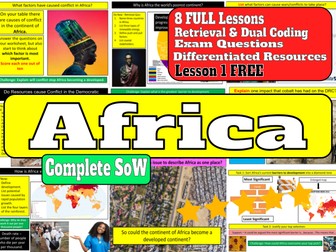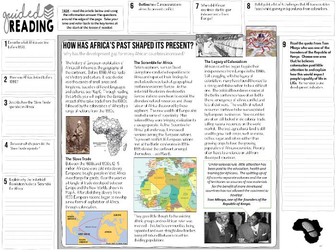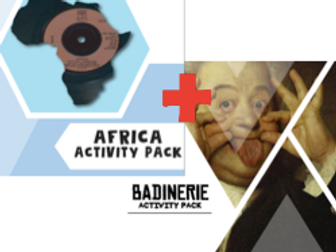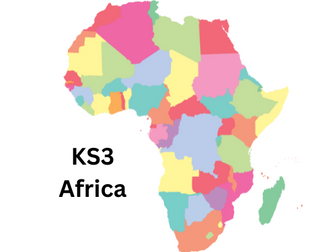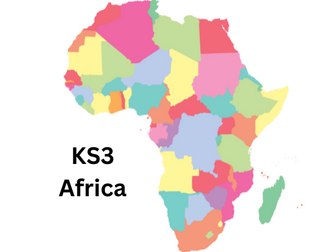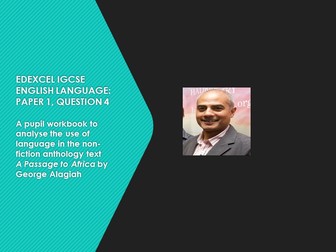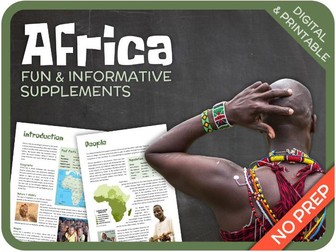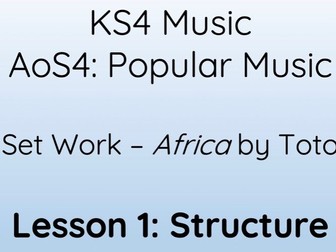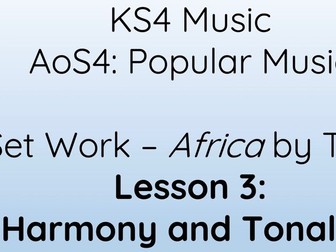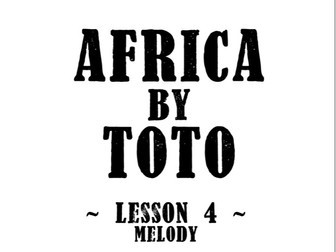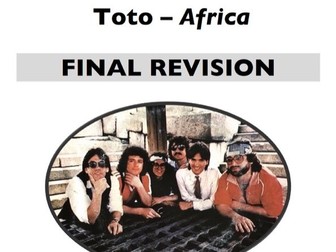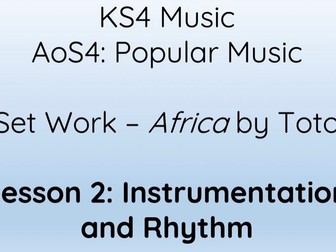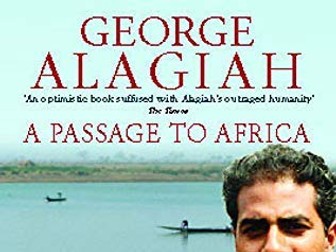Bundle
Africa
<p>SoW: Will Africa Ever Become a Developed Continent?</p>
<p>L1: Mapping Africa - Free Download - <a href="https://www.tes.com/teaching-resource/resource-12496148">https://www.tes.com/teaching-resource/resource-12496148</a></p>
<p>This unit is created in line with my personal passion for Africa’s future development. This unit is framed opportunity and threats to Africa’s future development, and the process and systems within them. A conscience effect has also been made to embed dual coding within this SoW, as well as much differentiation and debating.</p>
<p>SoW:</p>
<p>L1: What is the continent of Africa’s current situation (regions)?<br />
L2: Why is the continent of Africa the world’s poorest?<br />
L3: Why is Nigeria’s population growth causing a barrier to development?<br />
L4: Are Resources (Cobalt) causing issues for the DRC?<br />
L5: What factors have caused conflict in the continent of Africa?<br />
L6: Can health improvements allow Africa to become a continent?<br />
L7: How is female education changing in Uganda?<br />
L8: Is Rwanda moving towards becoming a developed nation?</p>
<p><a href="mailto:thegeographyshoporiginal@gmail.com" target="_blank" rel="nofollow">thegeographyshoporiginal@gmail.com</a></p>
<p>Best <strong>FREE</strong> Resources (The Geography Shop)</p>
<ul>
<li><a href="https://www.tes.com/teaching-resource/-12899088">https://www.tes.com/teaching-resource/-12899088</a> (Climate Change SoW)</li>
<li><a href="https://www.tes.com/teaching-resource/-12899440">https://www.tes.com/teaching-resource/-12899440</a> (Development SoW)</li>
<li><a href="https://www.tes.com/teaching-resource/-12638984">https://www.tes.com/teaching-resource/-12638984</a> (Waste SoW)</li>
<li><a href="https://www.tes.com/teaching-resource/-12451443">https://www.tes.com/teaching-resource/-12451443</a> (Britain Globalisation SoW)</li>
<li><a href="https://www.tes.com/teaching-resource/-12741793">https://www.tes.com/teaching-resource/-12741793</a> (Local Area Investigation SoW)</li>
<li><a href="https://www.tes.com/teaching-resources/bundler/12949461">https://www.tes.com/teaching-resources/bundler/12949461</a> (Cambridge International)</li>
<li><a href="https://www.tes.com/teaching-resource/-12922653">https://www.tes.com/teaching-resource/-12922653</a> (Israel & Palestine)</li>
<li><a href="https://www.tes.com/teaching-resource/resource-12485457">https://www.tes.com/teaching-resource/resource-12485457</a> (What is Geography?)</li>
</ul>
<p>I hope you find this SoW useful. If you have, I have created a series of resources.<br />
You can check them out here.</p>
<p><a href="https://www.tes.com/teaching-resources/shop/TheGeographyShopOriginal">https://www.tes.com/teaching-resources/shop/TheGeographyShopOriginal</a></p>
